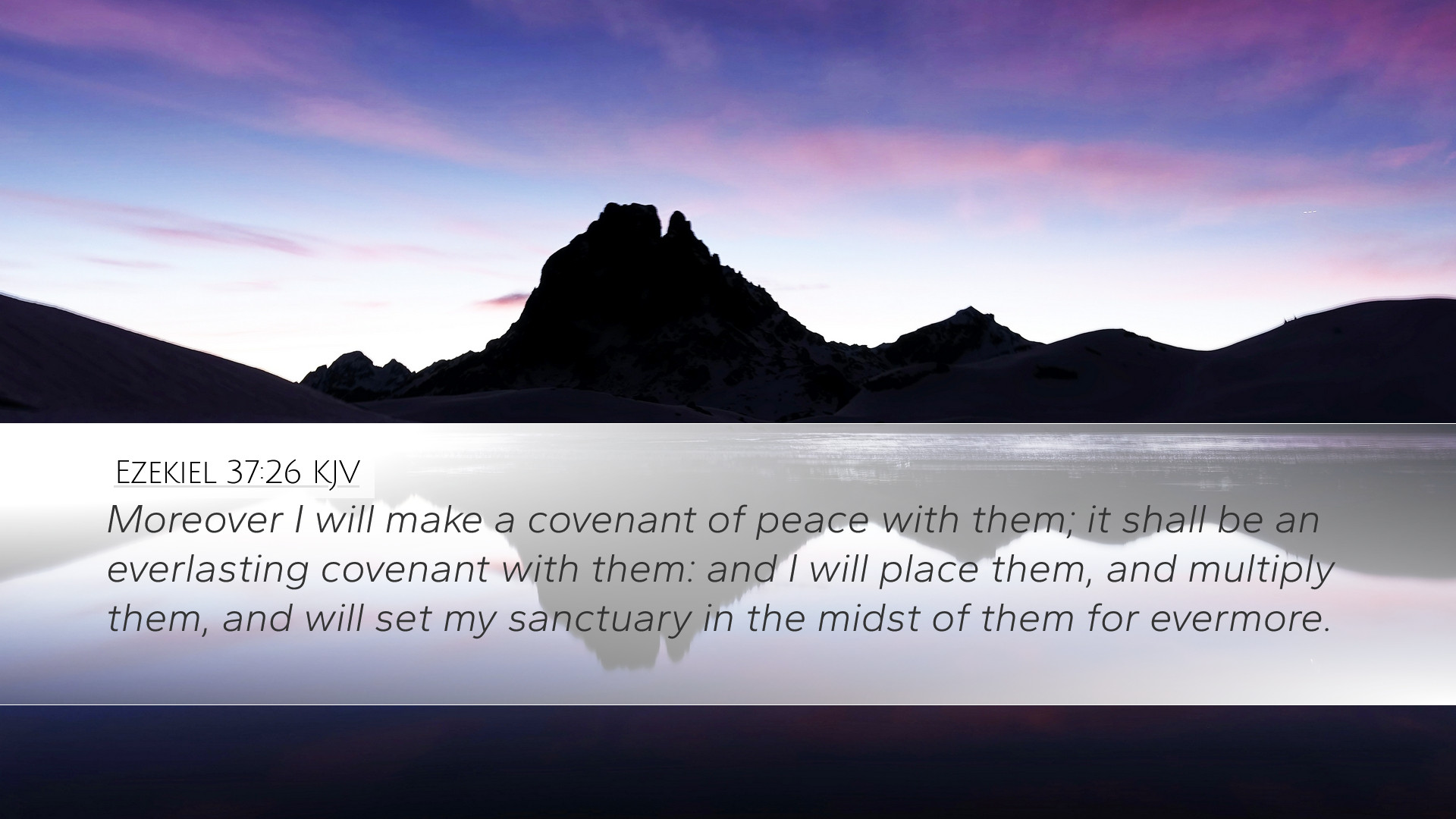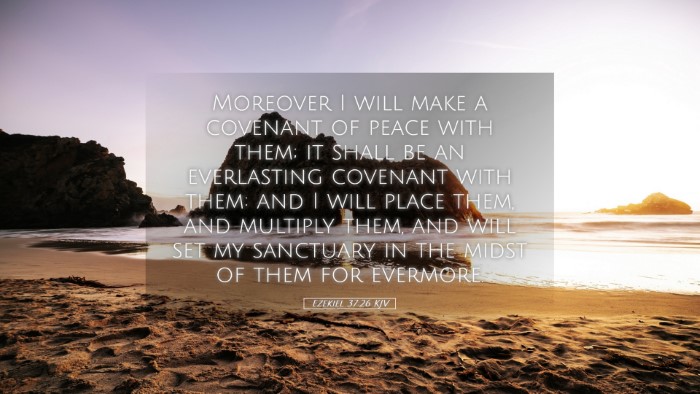Ezekiel 37:26 - Commentary and Insights
The verse under consideration, Ezekiel 37:26, states:
"And I will make a covenant of peace with them; it shall be an everlasting covenant with them. And I will set them in their own land and multiply them, and will set my sanctuary in their midst forevermore."
This promise of covenant speaks profoundly to the heart of God's relationship with His people and has been the subject of rich theological insights in the history of biblical exegesis.
Historical Context
Ezekiel, a prophet during the Babylonian exile, was called to address a demoralized people suffering the consequences of their disobedience to God. The promise of restoration conveyed in this verse is situated in a larger prophetic vision—one that anticipates both a physical and spiritual renewal for Israel.
Exegesis of Key Terms
- Covenant of Peace: The term “covenant” in the Hebrew context encompasses a range of meanings from agreement to an intimate bond forged by divine promise. Matthew Henry explains that this particular covenant emphasizes God's desire to restore peace and security to His people, reminding us that true peace can only be found in obedience to God.
- Everlasting Covenant: This signifies not merely longevity but an eternal and unbreakable relationship. Albert Barnes points out that this indicates the permanence of God's promises, contrasting with the temporary and conditional covenants made in the Mosaic law.
- My Sanctuary: The establishment of God’s sanctuary among His people reflects the profound concept of divine presence. Adam Clarke elaborates that the sanctuary symbolizes God’s dwelling and underscores His desire to be intimately involved in the life of His community.
Theological Implications
The implications of Ezekiel 37:26 resonate deeply with both individual believers and the Church. The promise of a renewed covenant encapsulates the essence of God’s redemptive work through Christ, who fulfills the role as the ultimate peace-bringer, as elucidated in the New Testament (Ephesians 2:14).
Restoration and Renewal
The themes of restoration and renewal are central motifs throughout the book of Ezekiel. As noted by Henry, God's intention to multiply His people signifies not only physical restoration but also spiritual revitalization. The covenant serves as a transition from despair to hope, accentuating God's faithfulness despite Israel's transgressions.
Peace as a Divine Gift
The concept of peace, particularly in Hebrew thought, signifies wholeness and harmony. This is reflected in the Hebrew term “shalom,” which implies not just an absence of conflict but a flourishing relationship with God. Clarke comments on the juxtaposition of peace against the backdrop of Israel's tumultuous experiences, emphasizing that divine peace is a redemptive act of grace.
Application for the Church
For pastors, scholars, and laypersons, this promise in Ezekiel provides fertile ground for contemplating the nature of God’s covenantal relationship today. How does the notion of an “everlasting covenant of peace” inform our understanding of ecclesiology and our mission in a fractured world?
- Faithfulness in Leadership: Church leaders are called to reflect God’s faithfulness in their pastoral care, echoing the commitment found in God’s covenant.
- Embodying Peace: Congregations are encouraged to act as agents of God's peace, creating environments that nurture belonging and unity.
- Anticipation of Fulfillment: The eventual eschatological fullness of peace signifies hope, encouraging believers to live in light of God’s promises.
Conclusion
In summary, Ezekiel 37:26 serves as a profound reminder of God’s unwavering commitment to His people. From the rich historical context to the significant theological implications, this verse invites deep reflection on God's nature and our response as His chosen vessels. The enduring promise of peace and restoration encapsulated in these words should inspire each believer to embrace God’s eternal covenant and live out the implications of divine peace in their personal lives and communities.


